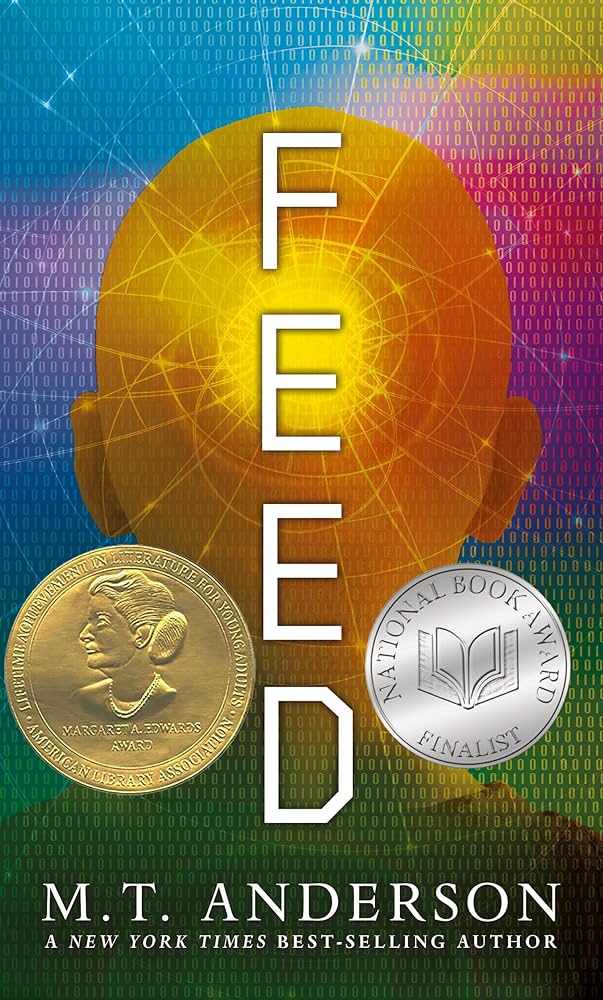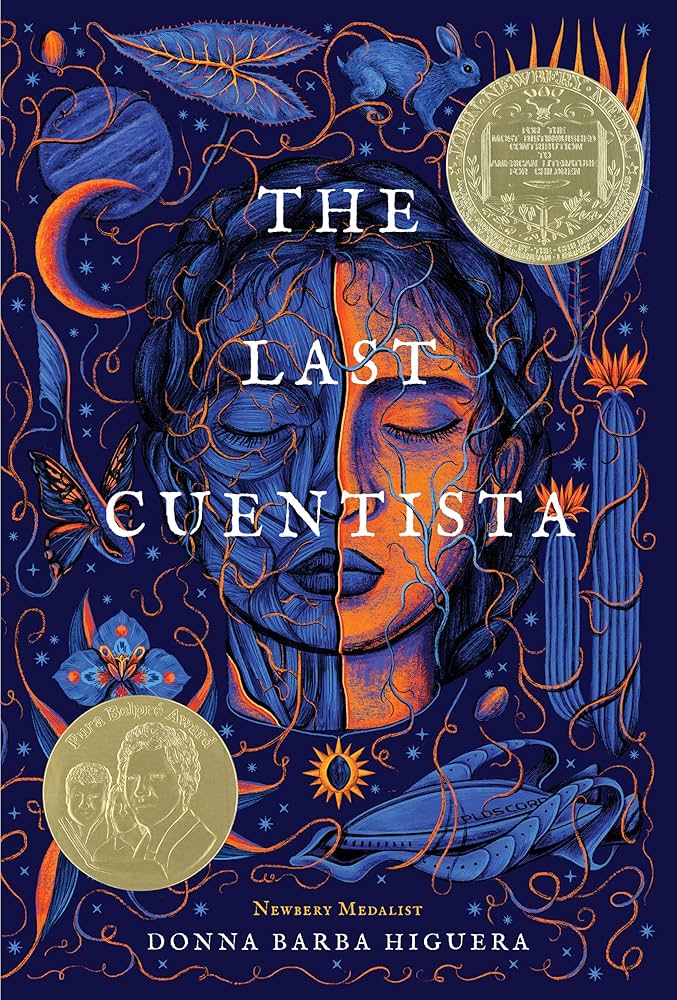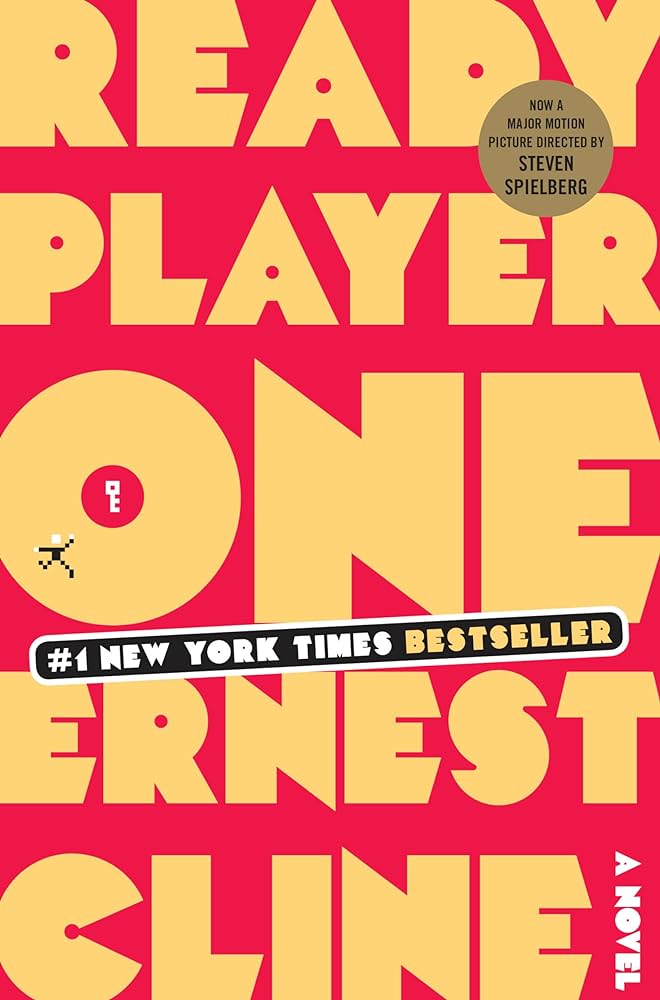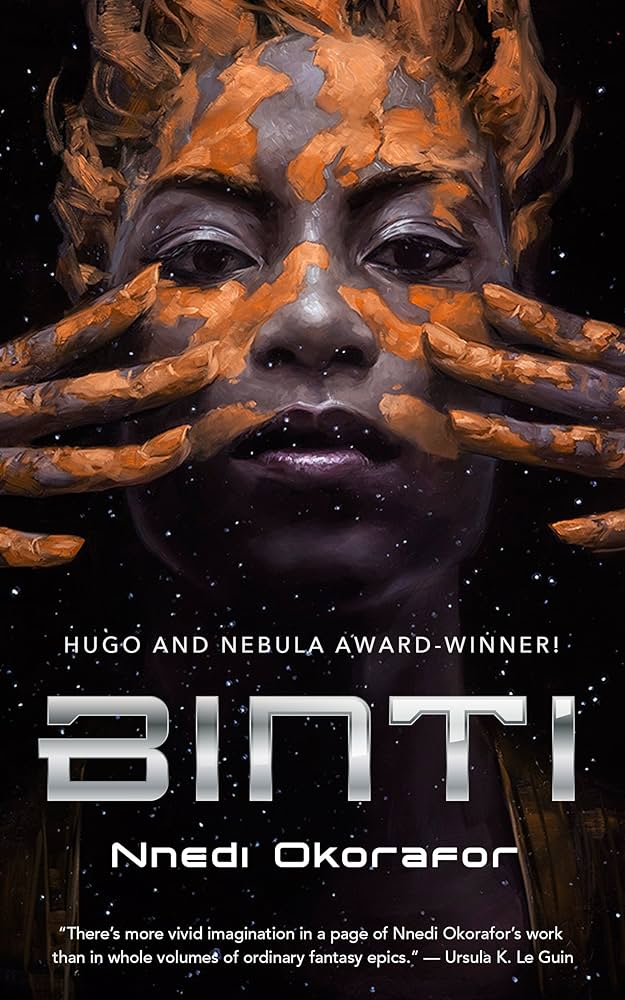16 Sci-Fi Books That Help Kids Make Sense of the Modern World
From stories about robots to climate change dystopias, these books can help students grapple with the societal issues shaping their futures.
Your content has been saved!
Go to My Saved Content.It’s no secret that today’s students are coming of age in a complex and rapidly evolving world. Science fiction, educators say, may be able to help them make sense of it.
While a biology lecture explaining the genome can be informative, Emily Midkiff, a literacy researcher and teacher educator at the University of North Dakota, says a sci-fi story exploring how specific characters would be affected if someone manipulated the genome “can get students more invested in the science—because they start to apply it to themselves and go, ‘Oh, what would it be like if I was in that situation?’”
Likewise, big societal issues whose immediate effects are sometimes hard to pin down—like climate change and sociopolitical shifts—can become more significant to students, and easier to reflect upon, when dramatized in fiction: “If you look at a science fiction story that takes place 500 years in the future, you can see those effects far more dramatically,” Midkiff says. She adds that research shows that sci-fi fans tend to think more deeply about the “potential consequences of scientific breakthroughs than non-fans.”
We asked teachers in our audience for sci-fi books that can help middle and high school students grapple with their modern world. From stories about robot companions to dystopian narratives focused on internet addiction, here are some teacher-tested favorites.
A Psalm for the Wild-Built, by Becky Chambers
On a distant moon, after robots flee human society to live in the wilderness, humanity is forced to deindustrialize and inhabit small, sustainable communities. When a monk named Dex encounters a lone robot, the pair travel to communities across the moon to answer the question, “What do people need?” Educators appreciated that this novella—unlike many sci-fi works—offers a hopeful outlook on the future.

Feed, by M.T. Anderson
In a future America, three-fourths of the nation’s citizens have their brains directly connected (via implant) to an advanced form of the internet known as the “feednet.” Anderson’s novel forces readers to reckon with topics like consumerism, addiction, corporate power, and more.
The Marrow Thieves, by Cherie Dimaline
In a future wracked by climate change, humans have lost the ability to dream—except for Indigenous people, who are hunted for their bone marrow to create a remedy for dreamlessness. With clear themes of Indigenous exploitation and resource scarcity, this book is rich fodder for in-class discussions.
Scythe, by Neal Shusterman
This trilogy is set in a world run by a benevolent AI, where natural death has been eradicated. To alleviate overpopulation, the AI selects humans to be killed, and the dirty work is carried out by government-appointed “Scythes.” Shusterman describes “what we dream of AI becoming one day, but explores what happens if the AI is too good,” writes educator Jason Spencer.
Ender’s Game, by Orson Scott Card
Humans are at war with an alien enemy known as the “buggers,” and children—including the genius protagonist, Ender—are recruited to help fight them off. Though the themes of warfare and xenophobia can make for a darker read, “[a]ll my students—boys, girls, readers, and nonreaders—love the book,” writes educator Kelly Weber.

The Last Cuentista, by Donna Barba Higuera
After an asteroid strikes Earth, Petra Peña’s family are among the lucky ones who flee the planet in a colonization ship. But when Petra realizes she is the only person left with any memories from Earth, she must use her storytelling to keep the planet’s history alive. Higuera’s book deals with themes of diaspora and cultural preservation, as well as attempts by those in power to restrict cultural and intellectual freedoms.
Klara and the Sun, by Kazuo Ishiguro
While many sci-fi stories focus on the perils of AI, Ishiguro offers a more balanced—and, at times, heartwarming—take. Klara and the Sun is written from the perspective of a childlike solar-powered android named Klara who is chosen by a sick human girl to be her companion. The book forces readers to consider how sentient AI ought to be treated—as well as the pros and cons of creating helper AI systems in the first place.
Fahrenheit 451, by Ray Bradbury
In Bradbury’s classic cautionary tale, books are illegal and burned if found; instead, people are content to consume mass media like movies and sports. “Bradbury saw 75 years ago the harbingers of today’s digitally addicted masses,” writes educator Tony Sellarole. There’s also a clear tie-in to recent book banning efforts, which can lead to fruitful discussions about censorship.

Ready Player One, by Ernest Cline
In the 2040s, humanity’s biggest pastime is donning VR headsets to join a virtual game world known as the OASIS, with life-changing prizes for the winners. Through the book’s focus on VR, Cline explores technology’s paradoxical ability to both isolate and connect us.
The Giver, by Lois Lowry
A modern classic, The Giver describes a seemingly utopian society with a dark, authoritarian underbelly. “The Giver has so many layers of discussion possibilities,” writes educator Sue Ngary, such as the trade-offs between safety and freedom.
The Infinity Particle, by Wendy Xu
This graphic novel—a great pick for struggling readers—tells the story of Clementine Chang, a young inventor who moves to Mars to work with acclaimed AI researcher Dr. Marcella Lin. When Clementine falls in love with Dr. Lin’s humanoid AI assistant named Kye, she—like the reader—is forced to reckon with questions about Kye’s apparent sentience.
Parable of the Sower, by Octavia Butler
Butler’s acclaimed postapocalyptic book describes a future world (coincidentally set in 2024) dismantled by climate change and inequality. Lauren Olamina—a teenager with “hyperempathy” who feels the same emotions she witnesses in others—leads a religious movement to better the lives of Earth’s suffering populace.

Binti, by Nnedi Okorafor
This novella tells the story of Binti, a Himba girl who is the first of her people to be accepted to a prestigious university in space. While in transit to the school, Binti’s spaceship ends up embroiled in a conflict between an alien species and humanity’s dominant race—a conflict that Binti must help resolve. “This book explores race, power, expectation, cultural diversity—all through a sci-fi lens,” writes educator Lisette Zwarts-Williams.
I, Robot, by Isaac Asimov
Though published in 1950, Asimov’s collection of short stories can help readers understand modern AI. In fact, Asimov’s “three laws of robotics,” which govern how the robots in his fictional universe ought to behave, continue to inform how many people think and write about AI control and AI ethics. I, Robot “asks all kinds of important moral and ethical questions about technology and humankind,” writes cegriffith on Instagram.
Matched, by Ally Condie
In an authoritarian society where everyone is “matched” with their life partner at age 17, Cassia Reyes is delighted to be matched with her best friend. But when the screen glitches and instead shows the face of an outcast boy, Cassia decides to dig into what happened. This novel combines dystopia with romance for a widely appealing read.
The Fifth Season, by N.K. Jemisin
The first book in Jemisin’s Broken Earth trilogy is set on a planet that periodically enters an era of chaos; massive natural disasters cause widespread strife and force many to leave their homes. Besides helping students understand how climate change is shaping trends like migration, the series deals with racism faced by minority groups and the division of society into social castes.
